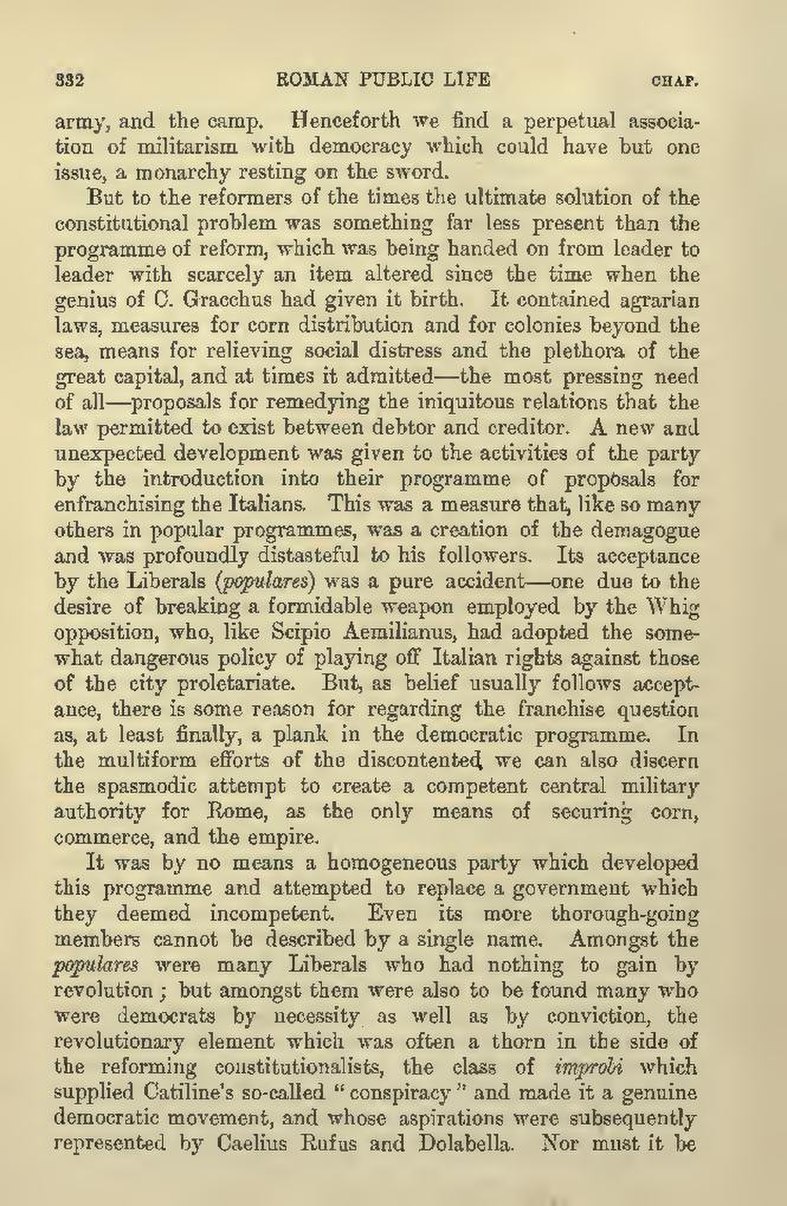army, and the camp. Henceforth we find a perpetual association of militarism with democracy which could have but one issue, a monarchy resting on the sword.
But to the reformers of the times the ultimate solution of the constitutional problem was something far less present than the programme of reform, which was being handed on from leader to leader with scarcely an item altered since the time when the genius of C. Gracchus had given it birth. It contained agrarian laws, measures for corn distribution and for colonies beyond the sea, means for relieving social distress and the plethora of the great capital, and at times it admitted—the most pressing need of all—proposals for remedying the iniquitous relations that the law permitted to exist between debtor and creditor. A new and unexpected development was given to the activities of the party by the introduction into their programme of proposals for enfranchising the Italians. This was a measure that, like so many others in popular programmes, was a creation of the demagogue and was profoundly distasteful to his followers. Its acceptance by the Liberals (populares) was a pure accident—one due to the desire of breaking a formidable weapon employed by the Whig opposition, who, like Scipio Aemilianus, had adopted the somewhat dangerous policy of playing off Italian rights against those of the city proletariate. But, as belief usually follows acceptance, there is some reason for regarding the franchise question as, at least finally, a plank in the democratic programme. In the multiform efforts of the discontented we can also discern the spasmodic attempt to create a competent central military authority for Rome, as the only means of securing corn, commerce, and the empire.
It was by no means a homogeneous party which developed this programme and attempted to replace a government which they deemed incompetent. Even its more thorough-going members cannot be described by a single name. Amongst the populares were many Liberals who had nothing to gain by revolution; but amongst them were also to be found many who were democrats by necessity as well as by conviction, the revolutionary element which was often a thorn in the side of the reforming constitutionalists, the class of improbi which supplied Catiline's so-called "conspiracy" and made it a genuine democratic movement, and whose aspirations were subsequently represented by Caelius Rufus and Dolabella. Nor must it be
